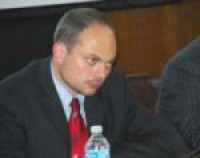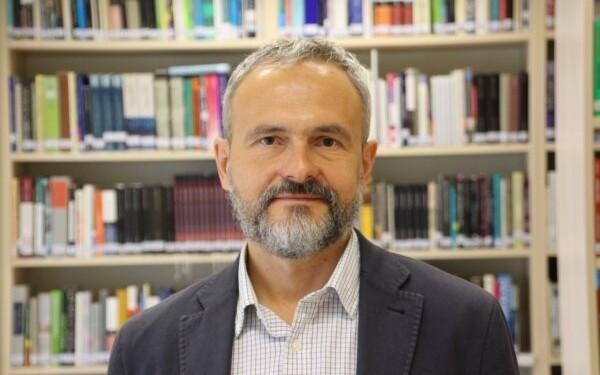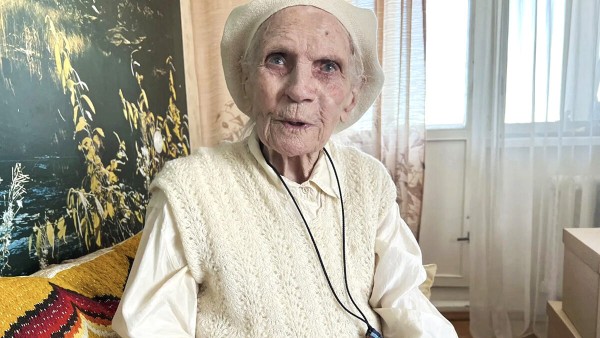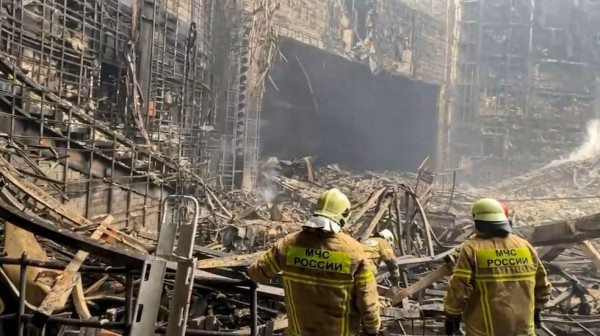https://www.washingtonpost.com...
Opinion by Vladimir Kara-Murza
Global Opinions contributor
Last week, Russia once again observed an annual ritual known as “Return of the Names,” a nationwide act of remembrance for millions of victims of the Communist regime. Every year, Russians gather near the former KGB headquarters in Moscow and in cities across the country to read out the names of relatives and others who perished under Soviet rule.
This year, the pandemic meant that the ceremony had to be shifted online, but thousands still tuned in all over Russia. The civic group Memorial, which oversees the commemoration, issued a statement noting that, “the totalitarian state did not just kill people — it also wanted to erase their names from history. The return of the memory of those slandered and murdered means a rejection of dictatorship and a step toward freedom.”
Not everyone in Russia is willing to take this step. Days before “Return of the Names,” the managers of a prominent historic apartment building in downtown St. Petersburg removed 16 plaques commemorating residents who had been arrested and led away to their deaths during Stalin’s Great Terror in the 1930s. The plaques had been installed, among many others across Russia, as part of the “Final Address” initiative, which is supported by Memorial and inspired by the “Stumbling Stones” project that commemorates Holocaust victims in Germany.
According to local media reports, the removal of the plaques had been demanded by three residents (who refused to identify their names) because they had “a different view” of Soviet history. Boris Vishnevsky, an opposition lawmaker who visited the management company and vowed to get the plaques reinstated, has accused the anonymous complainants of “astounding moral deafness.” Some commentators have suggested that the residents in question may be the descendants of Soviet secret police operatives who took over their victims’ apartments, as often happened in Stalin’s time.
Since Vladimir Putin came to the Kremlin two decades ago, the Russian government has engaged in a tacit but determined rehabilitation of the Soviet period. Among Putin’s first acts in office was to bring back the Stalin-era national anthem. A textbook approved by his education ministry justified Stalin’s purges as having created “a new class of management suitable to the goals of modernization.”
When Putin came to power, there was not a single monument to Stalin in Russia; today there are more than a hundred — installed ostensibly on private initiative, but with a quiet nod from the authorities. Yuri Dmitriev, a historian who has worked to document mass executions carried out under Stalin, was recently sentenced to 13 years in prison on charges widely seen as fabricated and aimed at silencing an unwelcome voice of historical truth.
Last month, Putin took another step toward halting criticism of his Soviet predecessors. At a meeting of the Kremlin’s culture and arts council, he supported criminalizing comparisons between Stalin’s U.S.S.R. and Hitler’s Germany. In Putin’s view, drawing such a parallel would constitute “a rewriting of history.”
Given the well-documented similarities between Stalin’s and Hitler’s dictatorships — and their two-year collaboration after the 1939 Molotov-Ribbentrop Pact, which was officially condemned by the Soviet parliament in 1989 — the only one rewriting history here would be Putin himself. “Putin and his group don’t know and don’t want to know history,” said Lev Shlosberg, an opposition leader and regional lawmaker in Russia’s northwest. “They are not interested in what actually happened, only in what they want to hear.”
History and politics have always intersected in Russia, but all the more so since the collapse of the Soviet regime in the early 1990s. Russia’s new leadership under President Boris Yeltsin had dismantled the old power structure and moved toward a democratic society, but it failed — or refused — to definitively break with the Soviet state. Archives were not fully opened, the crimes of the old system not publicly condemned, the structures of the KGB were renamed but not demolished. “Be careful, it’s like dealing with a wounded beast. If you don’t finish it off, it will attack you,” Vladimir Bukovsky, a prominent Soviet-era dissident, warned in the 1990s. His prediction came true with Putin’s arrival in the Kremlin at the end of the decade.
And yet, for all their propaganda resources, the forces of revisionism have not managed to fully capture Russian society. This can be seen clearly in the people standing in long lines (in normal non-pandemic years) every October to read out a name from the long list of the Soviet regime’s victims. Grass-roots initiatives are not only commemorating the victims of Soviet purges but also returning once-erased names to streets and squares. Last month, the local council in the historic city of Tarusa, some 80 miles south of Moscow, voted unanimously to remove the names of Communist leaders — including Vladimir Lenin, Yakov Sverdlov and Moisei Uritsky — from its streets, reinstating historic pre-1917 toponyms. “Our society will recover, it will heal,” said Shlosberg, the opposition lawmaker. “The healthy part of society is indestructible. As long as there is even one person willing to speak about freedom, freedom has a chance.”
In Russia, the past is a constantly moving target
Eestlased Venemaal | 08 Nov 2020 | EWR
Eestlased Venemaal
TRENDING

























